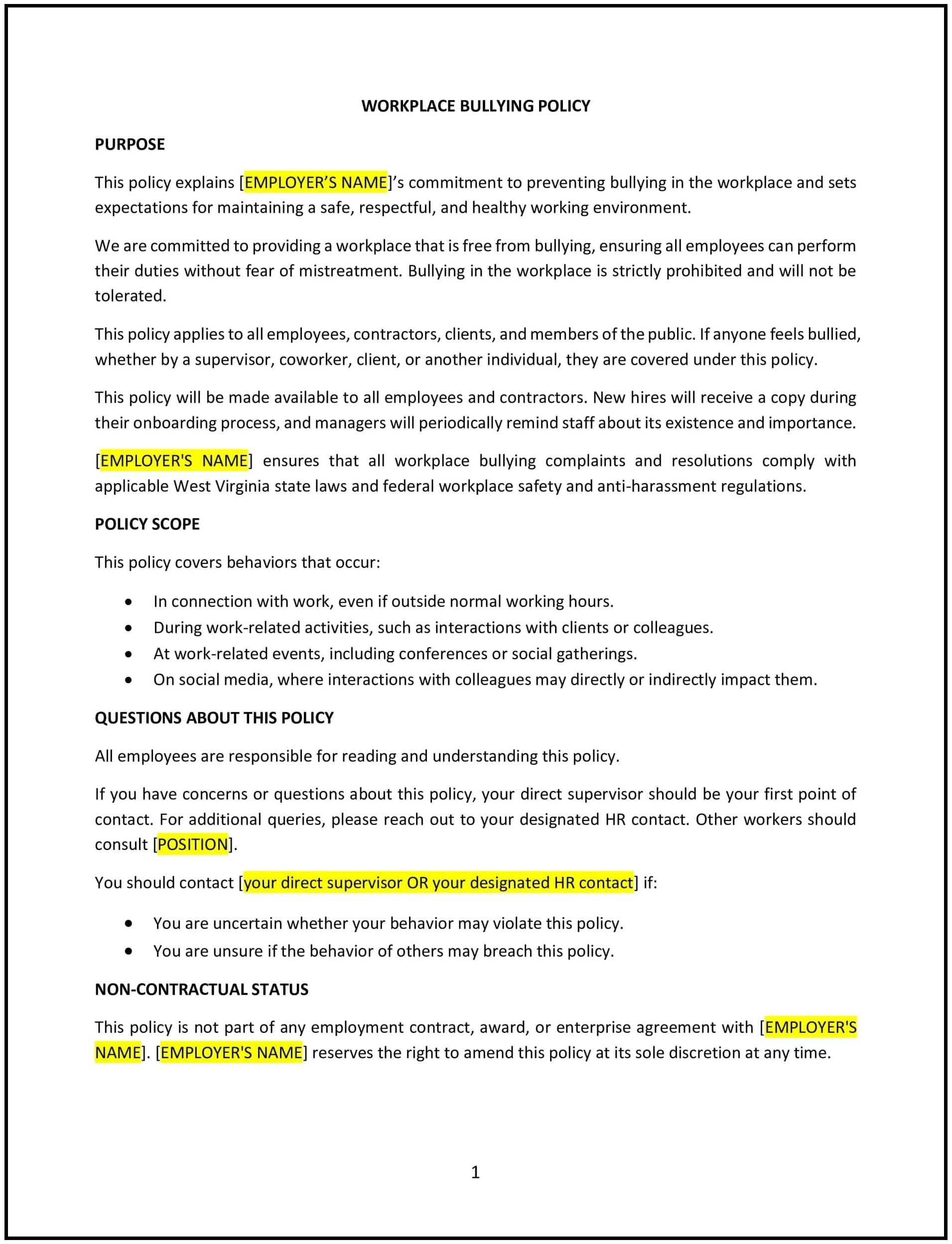Workplace bullying policy (West Virginia): Free template
Got contracts to review? While you're here for policies, let Cobrief make contract review effortless—start your free review now.

Customize this template for free
Workplace bullying policy (West Virginia)
In West Virginia, a workplace bullying policy provides guidelines to address and prevent bullying behaviors, fostering a respectful and supportive work environment. This policy ensures employees understand the organization’s commitment to eliminating workplace bullying and outlines clear procedures for reporting and resolving incidents.
The policy defines workplace bullying, prohibited behaviors, reporting procedures, and measures for addressing complaints while ensuring compliance with applicable laws.
How to use this workplace bullying policy (West Virginia)
- Define workplace bullying: Clearly specify behaviors that constitute bullying, such as verbal abuse, intimidation, exclusion, or sabotaging work efforts.
- Outline reporting procedures: Provide steps for employees to report bullying incidents, including designated contacts such as HR or supervisors.
- Establish investigation protocols: Detail the process for investigating reports of bullying, ensuring fairness, confidentiality, and timely resolution.
- Include preventive measures: Highlight initiatives like training programs, awareness campaigns, and workplace behavior guidelines to prevent bullying.
- Support compliance: Ensure the policy aligns with West Virginia labor laws and federal workplace safety standards to protect employees’ rights.
Benefits of using a workplace bullying policy (West Virginia)
- Promotes a positive workplace: Encourages respect and collaboration among employees, improving morale and productivity.
- Supports compliance: Aligns with West Virginia laws and federal regulations, promoting legal adherence and employee protection.
- Encourages reporting: Provides a safe and confidential channel for employees to report bullying without fear of retaliation.
- Reduces conflict: Establishes clear guidelines for addressing and resolving bullying complaints effectively.
- Enhances employee trust: Demonstrates the organization’s commitment to creating a supportive and respectful work environment.
Tips for using a workplace bullying policy (West Virginia)
- Communicate the policy: Share the policy with employees during onboarding and reinforce its importance through regular training sessions.
- Train managers: Equip supervisors to identify and address bullying behaviors promptly and appropriately.
- Foster open communication: Create a culture where employees feel comfortable discussing workplace concerns without fear of reprisal.
- Document incidents: Maintain detailed records of reported incidents, investigations, and resolutions to ensure transparency and accountability.
- Review periodically: Update the policy to reflect changes in West Virginia laws, workplace dynamics, or organizational practices.